Growth, Gratitude & Getting Stuck In
- gardengateproject

- Jul 31, 2025
- 4 min read
Updated: Aug 31, 2025
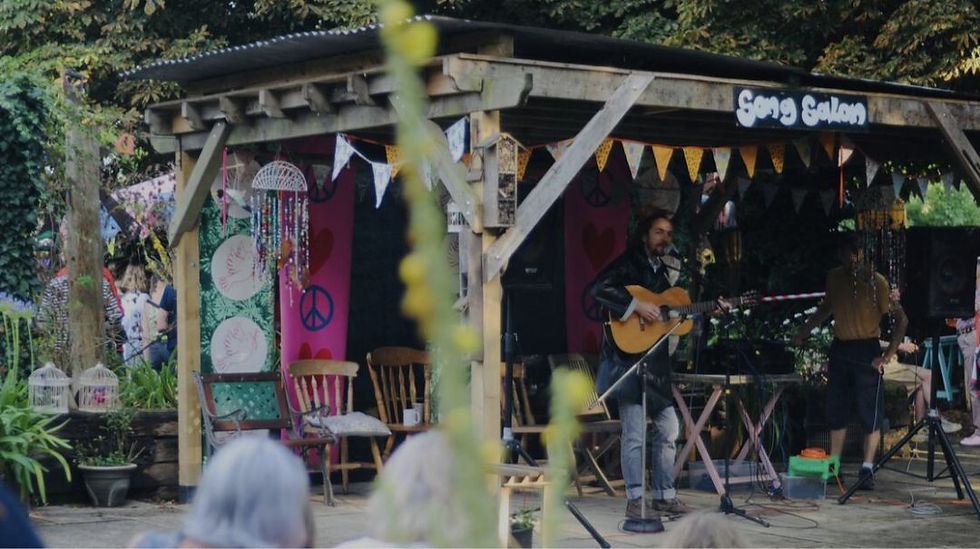
Despite a sudden heavy downpour, our annual Music Day on Saturday 19th July was a resounding success. Thank you to everyone who braved the rain and made the day so special.
We’re incredibly grateful to Gadds Brewery for the beer, Julian at The Lifeboat & Chapel for the cider, and to Harvey Waste for handling our recycling. Sustainability is central to what we do—we like to think of ourselves as Thanet’s greenest festival!
A huge thank you goes to Will Rees, who curated a fantastic musical line-up of 14 acts performing across two stages. We’re so appreciative of all the talented musicians who generously donated their time and spirit to create such a joyful community event.
And of course, to our brilliant volunteers—your energy, commitment, and behind-the-scenes hard work made it all possible. We couldn’t do it without you.
Garden Update: Growth and Harvest in Full Swing
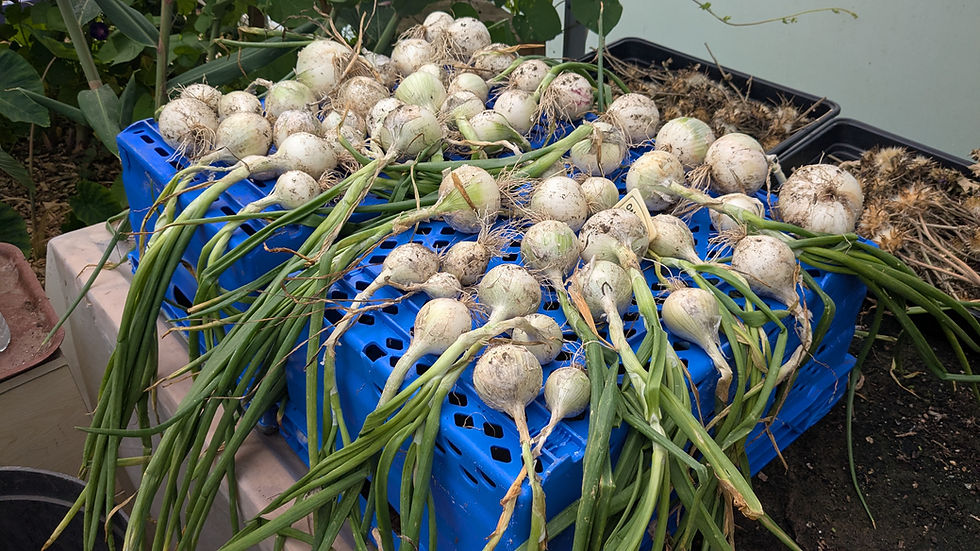
As we head into August, the garden is brimming with life, colour, and edible delights. We’ve now harvested our onions and are enjoying a steady supply of runner beans, ideal for steaming lightly and tossing in butter or lemon juice. If you’re after a seasonal supper idea, try slicing them into a stir-fry with garlic, ginger and sesame for a vibrant summer dish.
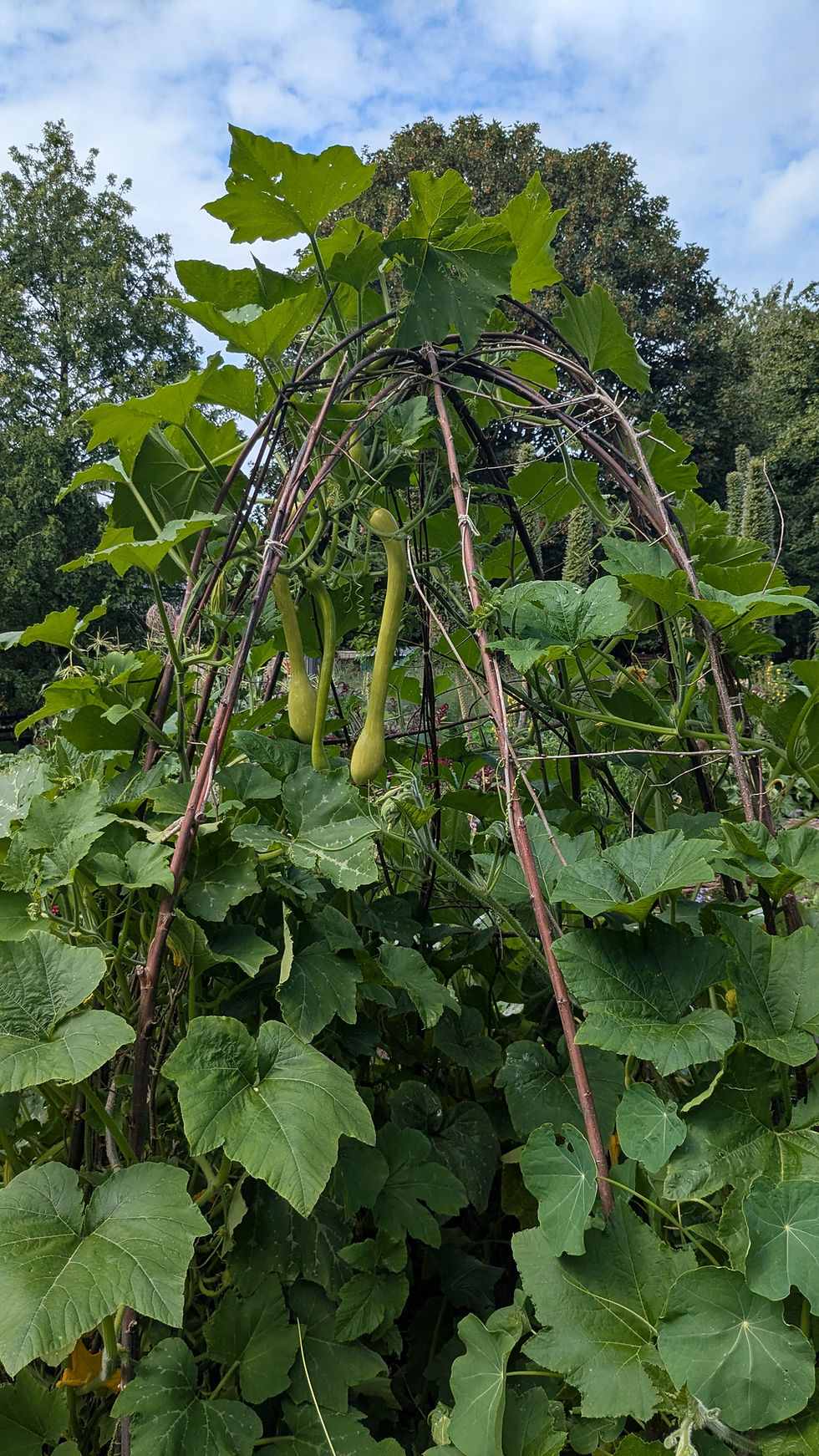
Our tromboncino squash has completely overtaken its wigwam, with curving fruits now dangling from the climbing vines. These long, pale green squashes are as versatile as courgettes—perfect roasted, grilled or spiralised raw into ribbons for a crunchy salad. Harvest them young for tenderness, or leave them to mature into firmer gourds.
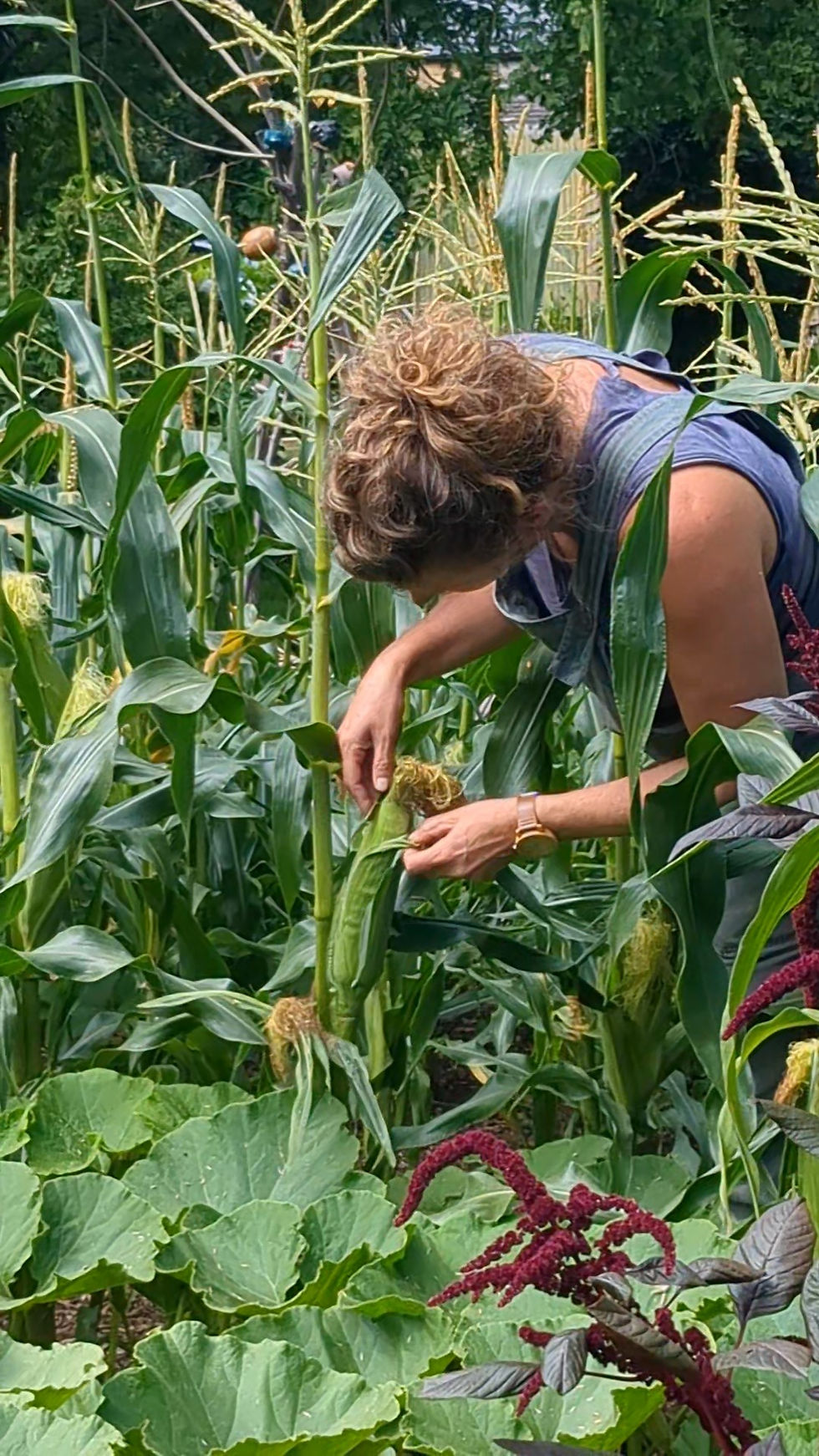
Over in the sweetcorn beds, we’re checking daily to see if the cobs are ready. If you’re wondering how to tell when sweetcorn is ripe, look for brown, dry silks at the top of the cob and give the kernel a gentle press with your fingernail. If a milky sap appears, it’s ready to pick. If it’s watery, wait a bit longer. If it’s thick and pasty, you’ve waited too long.
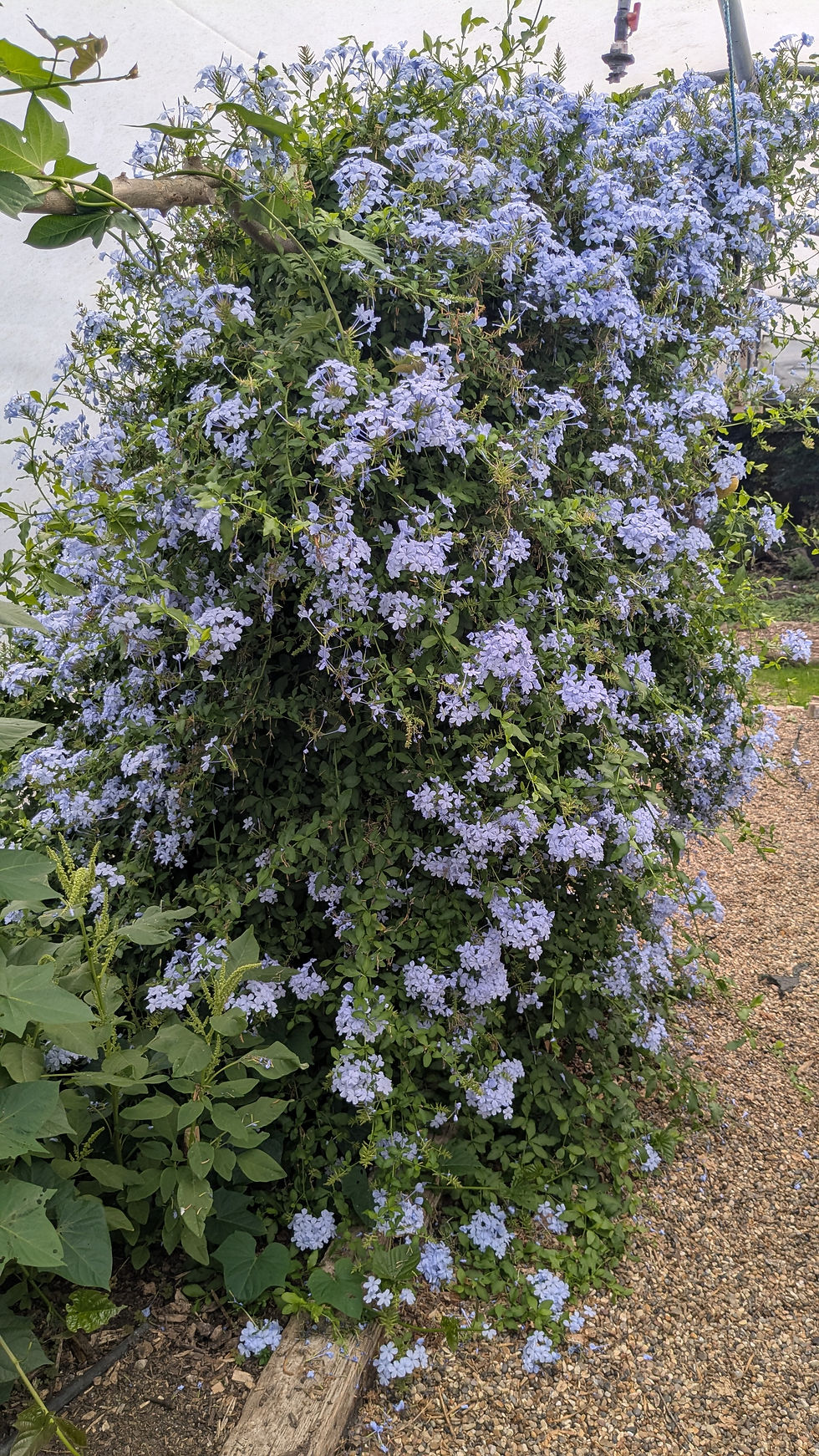
In the smaller polytunnel, our plumbago (Plumbago auriculata) is looking absolutely spectacular. Native to South Africa, this tender perennial thrives in sheltered spots with plenty of sun. Its clusters of sky-blue flowers bloom prolifically through the summer, attracting pollinators and adding a soft Mediterranean feel. It prefers moist, well-drained soil and benefits from regular deadheading to prolong flowering.
Beside it, our coleus plants are catching the eye with their richly coloured foliage in vibrant shades of red, burgundy, and lime. Coleus (Solenostemon scutellarioides) is a tropical plant grown mostly for its dramatic leaves. Though it's usually grown as an annual here in the UK, cuttings root easily in water and can be overwintered indoors. Keep pinching out the tips to encourage bushiness and prevent flowering, which can shorten the life of the plant.
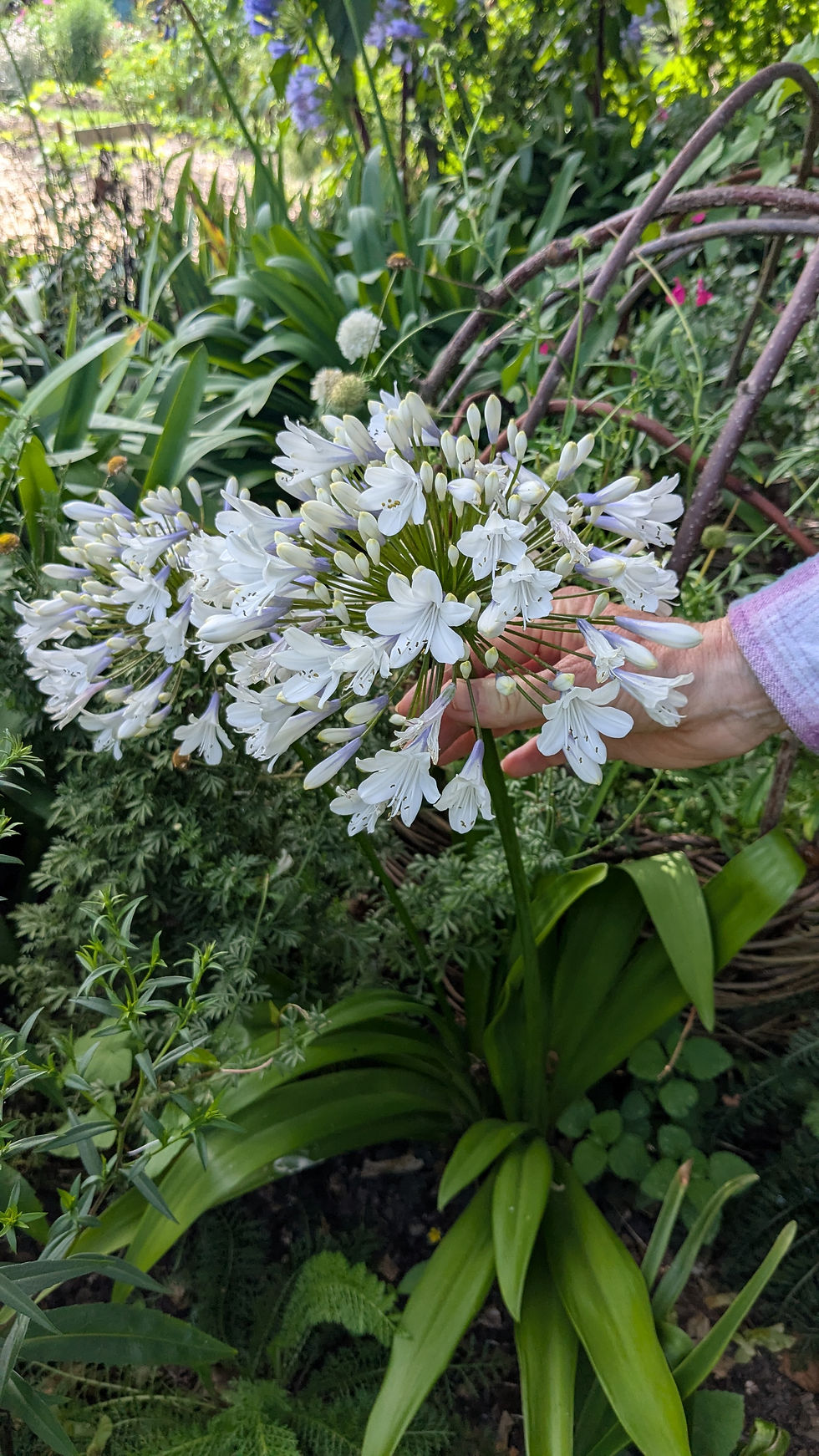
Meanwhile, in our ornamental flower beds, Tina is already planning ahead to autumn. She’ll be lifting and dividing some of our herbaceous perennials, including a stunning white-flowered Agapanthus. Dividing helps rejuvenate the plants, prevents overcrowding, and gives us new clumps to spread throughout the garden—or share at our next plant sale.
Laura has been thoughtfully arranging some of our homegrown flowers and vegetables into a stunning mandala—a creation that’s as meditative as it is artistic. Her work brings a sense of calm and beauty to the garden, reminding us how nature and creativity go hand in hand.
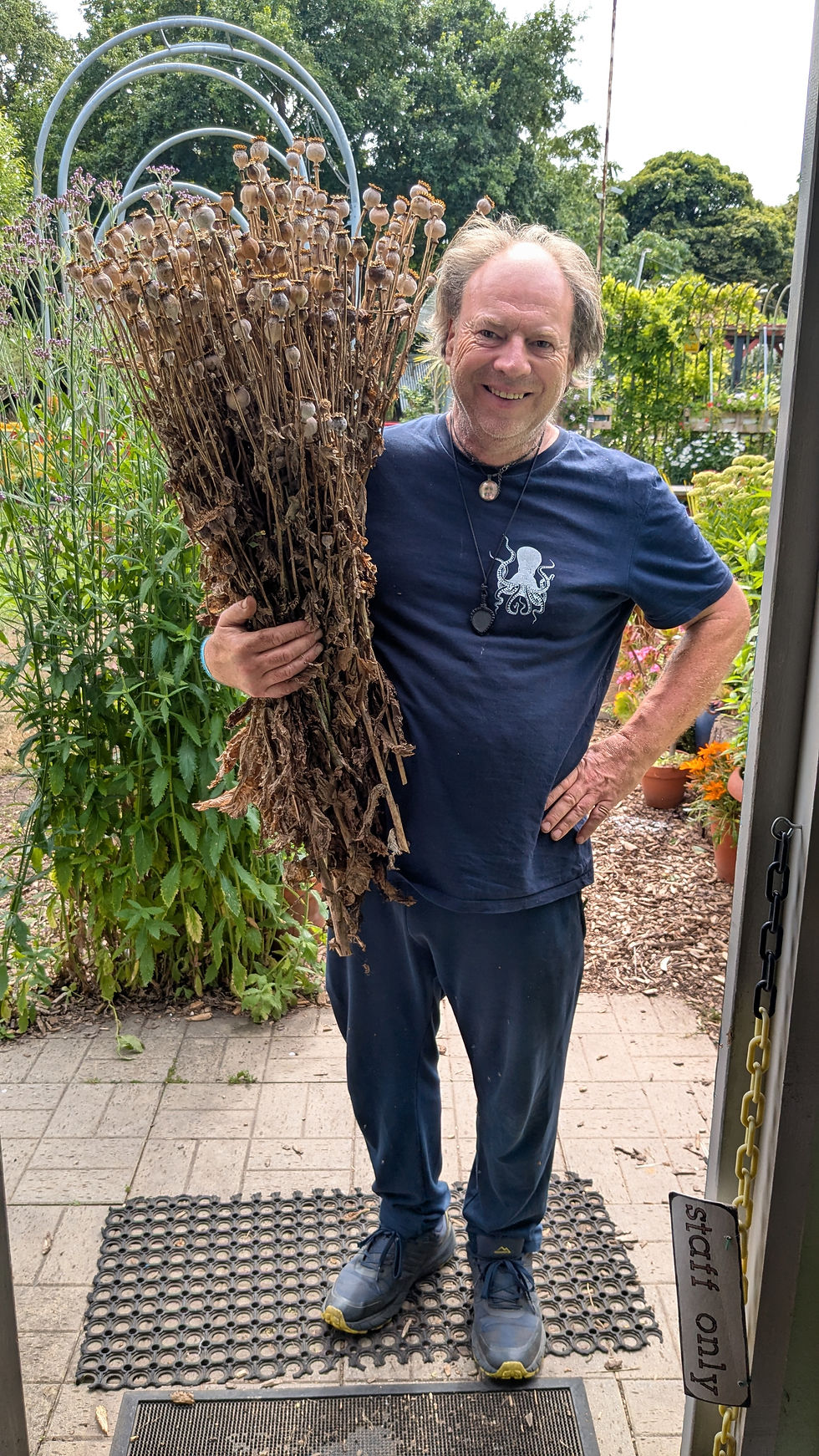
Volunteer Jason, one of our new green-fingered additions, has been busy gathering dried poppy heads for decorative use and saving their seed for next year. It’s a calming, almost meditative task, and one with big rewards. Saving your own seed not only reduces costs and waste, but strengthens the connection between seasons, helping you feel more in tune with the natural rhythms of the garden.
The Therapeutic Power of Gardening
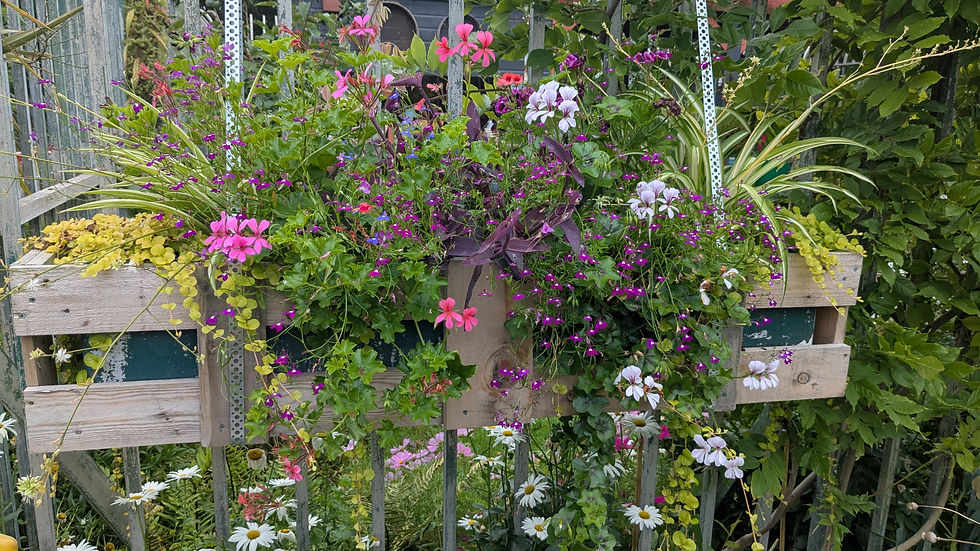
Spending time in the garden doesn’t just nourish the body—it’s tremendously healing for the mind and spirit too. Volunteering here offers a powerful mix of physical activity, outdoor exposure, and social connection.
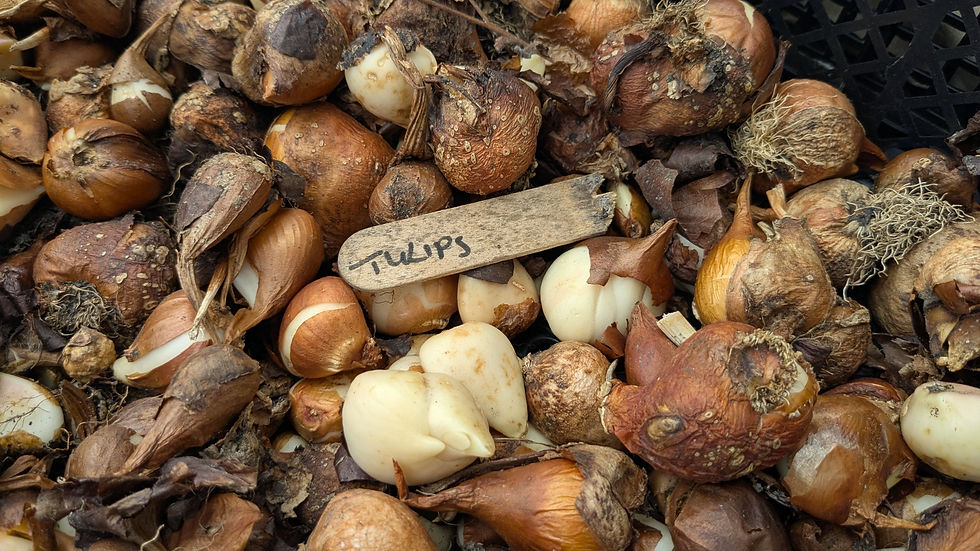
Even light work like weeding or planting improves cardiovascular health, boosts flexibility, and raises energy levels. Being surrounded by greenery and fresh air helps lower cortisol levels, easing stress and anxiety. The repetitive, sensory-rich actions involved in gardening are ideal for practising mindfulness, drawing attention away from negative or intrusive thoughts and into the present moment.
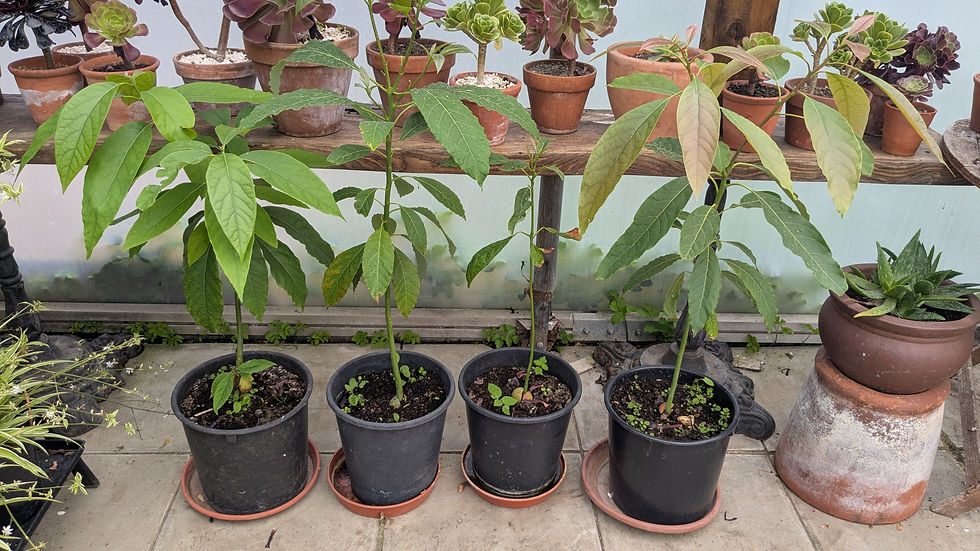
For those experiencing depression, the restorative rhythm of regular volunteering can help rebuild motivation and structure. Watching something grow—from seed to harvest—offers a deep sense of accomplishment. It reminds us that patience, care, and persistence bear fruit. And perhaps most importantly, the community aspect of gardening brings people together in an inclusive, welcoming space where friendships form naturally and confidence quietly blooms.
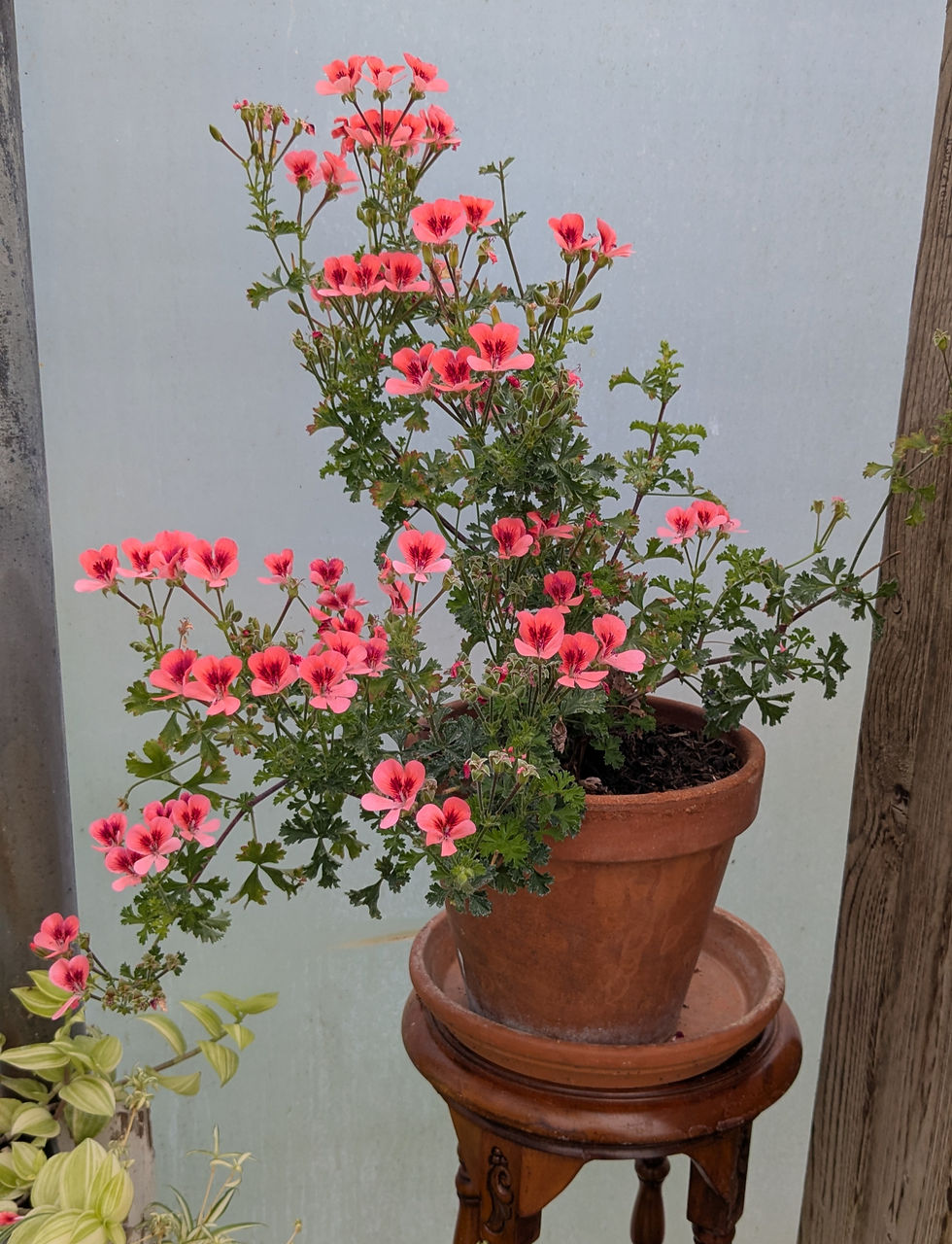
Looking Ahead
There’s still plenty of summer to come, and plenty to do. Remember to keep on top of deadheading faded blooms to stimulate repeat flowering, and to sow more salad seeds now for an abundant autumn harvest.
If you fancy popping by for a chat and a cup of tea, we’re always happy to see you.
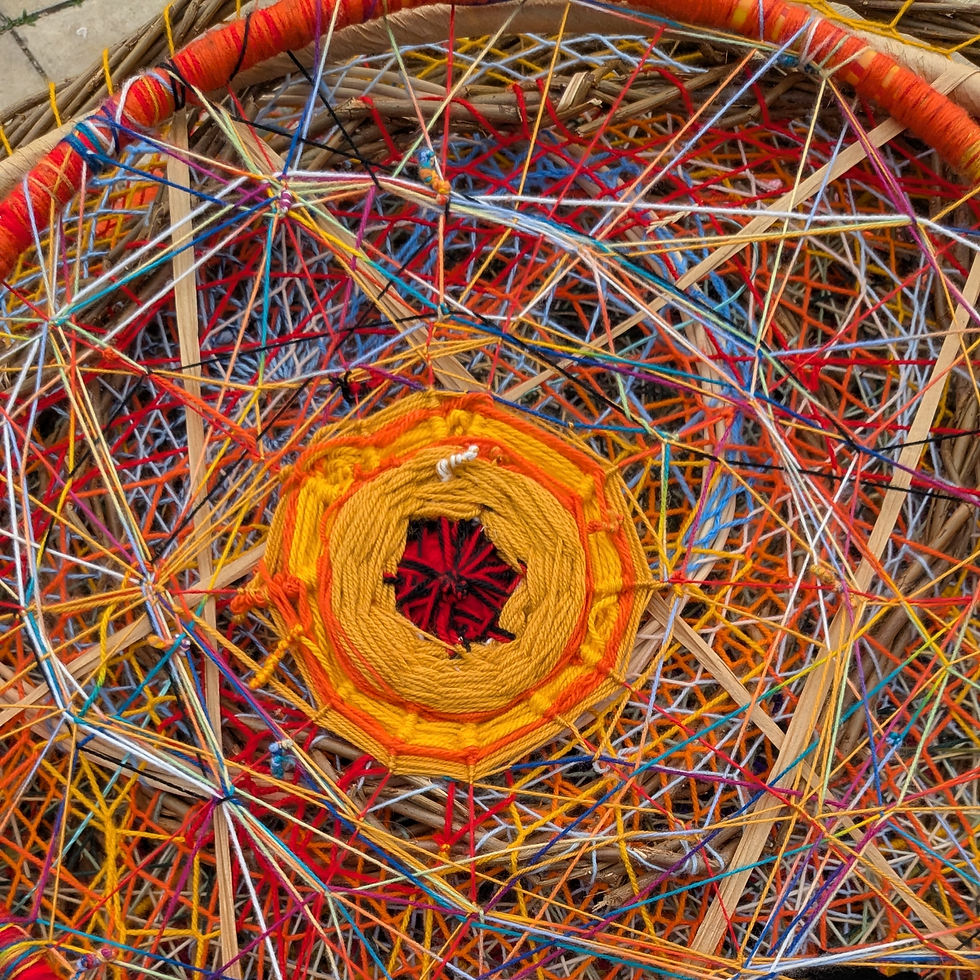
If you’re curious about getting involved, now’s the perfect time to join us. Come get your hands dirty—you might be surprised by how much it lifts your spirits.
Until next time, happy gardening!
*Additional photo credits: Rachel van Hoven & Paul Boyce











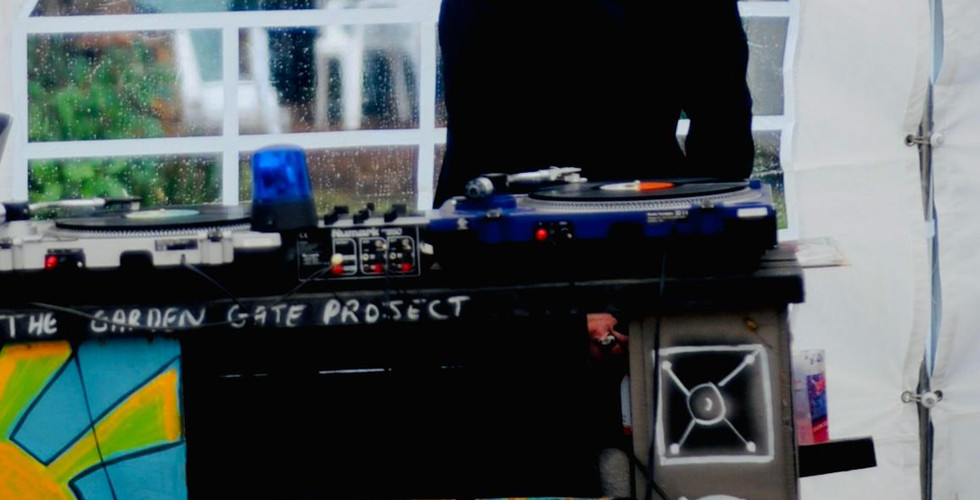













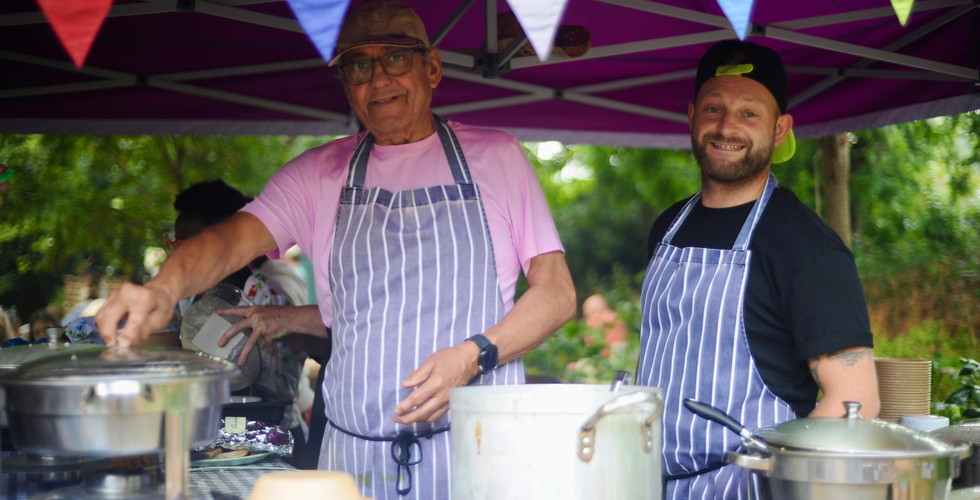













































Comments